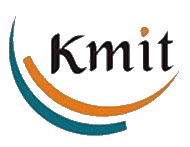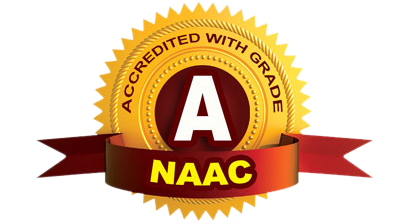About EIE - ( Note: EIE course is being discontiued from AY 2020-21 )
Electronics and Instrumentation Engineering program was introduced in Keshav Memorial Institute of Technology with a sanctioned intake students in the academic year 2007 – 08. The scope of Instrumentation engineering is vast and appears to be growing due to increased use of automation in manufacturing and process plants. The curriculum for this course includes design of analog and digital devices used for measurement and control applications. Students also learn to program microcontrollers and PLC’s which finds wide spread application in all disciplines of engineering. Since the commencement of the program, the department has grown with well qualified faculty and infrastructure. There are well equipped laboratories to meet the curriculum standards. Additionally, efforts have been made to bridge the curriculum deficit with current industrial needs by training the students on new technologies such as Cadence tools, Zigbee modules and Microcontrollers in real time applications. The department nurtures the students by encouraging them to actively participate in extracurricular and co-curricular activities.
Courses Offered
| S. No. | Name of the Degree | Course | Total Intake | Management Seats/NRI Seats | Convenor seats |
|---|---|---|---|---|---|
| 1 | B.Tech | Electronics Instrumentation Engineering (EIE) | 60 | 18 | 42 |
Vision of the Department
To be a leader in providing world class quality education, technology development and research in the field of Electronics & Instrumentation Engineering for the benefit of Industry and society.
Mission of the Department
To generate new knowledge by engaging in cutting-edge research and to promote academic growth by offering state-of-the-art undergraduate programmes.
To undertake collaborative projects which offer opportunities for long-term interaction with academia and industry.
Provide ethical and value based education by promoting activities addressing the societal needs.
-
To develop entrepreneurs & skilled Engineers to strengthen the industrial world.
Program Educational Objectives (PEOs)
Excel in Professional career and pursue higher education using their fundamental knowledge in mathematical and Engineering Principles.
Communicate effectively and manage resources skillfully as members and leaders of the profession.
Be receptive to new technologies and attain professional competence through lifelong learning such as continuous learning, advanced degrees, publications and other professional activities.
Programme Outcomes (POs)
Engineering Graduates of will be able to:
Engineering Knowledge: Apply the knowledge of mathematics, science, engineering fundamentals, and an engineering specialization to the solution of complex engineering problems.
Problem Analysis:Identify, formulate, review research literature, and analyze complex engineering problems reaching substantiated conclusions using first principles of mathematics, natural sciences, and engineering sciences.
Design/Development of solutions: Design solutions for complex engineering problems and design system components or processes that meet the specified needs with appropriate consideration for the public health and safety, and the cultural, societal, and environmental considerations.
Conduct Investigations of Complex problems: Use research-based knowledge and research methods including design of experiments, analysis and interpretation of data, and synthesis of the information to provide valid conclusions.
Modern Tool Usage: Create, select, and apply appropriate techniques, resources, and modern engineering and IT tools including prediction and modelling to complex engineering activities with an understanding of the limitations.
The Engineer and Society:Apply reasoning informed by the contextual knowledge to assess societal, health, safety, legal and cultural issues and the consequent responsibilities relevant to the professional engineering practice.
Environment and Sustainability:Understand the impact of the professional engineering solutions in societal and environmental contexts, and demonstrate the knowledge of, and need for sustainable development.
Ethics: Apply ethical principles and commit to professional ethics and responsibilities and norms of the engineering practice.
Individual and Team Work: Function effectively as an individual, and as a member or leader in diverse teams, and in multidisciplinary settings.
Communication: Communicate effectively on complex engineering activities with the engineering community and with society at large, such as, being able to comprehend and write effective reports and design documentation, make effective presentations, and give and receive clear instructions.
Project Management and Finance: Demonstrate knowledge and understanding of the engineering and management principles and apply these to one’s own work, as a member and leader in a team, to manage projects and in multidisciplinary environments.
Life-Long Learning: Recognize the need for, and have the preparation and ability to engage in independent and life-long learning in the broadest context of technological change.
Program Specific Outcome's (PSO's)
Students will have the ability to explore the design, installation & operation of the basic instrumentation systems used in industrial environments.
-
Develop and simulate the mathematical models to automate the industrial processes.






